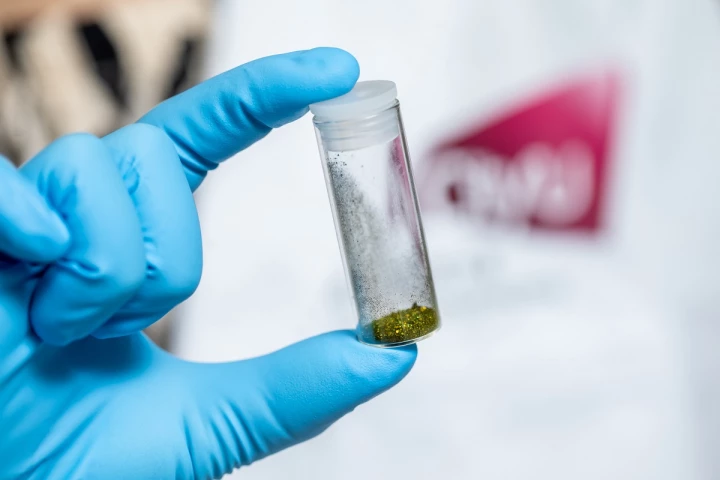Cancer Tissue
-
A bacterium from the gut of Japanese tree frogs has "exhibited remarkably potent" tumor-killing abilities when administered intravenously, outperforming current standard therapies and paving the way for an entirely new approach to treating cancer.
-
When fighting cancer, chemotherapy is still a bit of a blunt instrument. By combining it with soundwaves, however, researchers have found a way to turn it into more of a scalpel than a club, sparing damage to nearby tissue and the body as a whole.
-
Three new prostate cancer biomarkers have been identified that improve the visibility of cancer cells used by pathologists to grade the disease’s severity, which could help determine which patients require urgent treatment and those who don’t.
-
Diagnosing cancer requires a pathologist's expertise to analyze a biopsy sample. But a team of scientists has now developed a quick and simple method of analyzing biopsy samples for cancer that might make pathologists a thing of the past.
-
Scientists at Cambridge have identified a protein that plays a key role in cancer metastasis, which not only hints at a new potential treatment but reveals for the first time that this process isn’t unique to cancer, as previously thought.
-
A compelling study is suggesting all cancer cells may have the capacity to enter states of dormancy as a survival mechanism to avoid destruction from chemotherapy. And the mechanism these cells deploy notably resembles one used by hibernating animals.
-
Dormant tumor cells can sit quietly for years but exactly what reactivates these sleeping cancer cells is unknown. A new study is offering a novel hypothesis, suggesting stress hormones can trigger a chain of events that reawaken these dormant cells.
-
Cancer spreads easily, and a common location for secondary tumors to appear is the lungs. Now, scientists at Harvard’s Wyss Institute have developed a way to treat metastatic tumors in the lungs, by attaching immune-baiting drugs to red blood cells.
-
Gold has shown promise in fighting cancer in many studies, and now researchers have found a way to grow gold nanoparticles inside cancer cells within 30 minutes. From there, the gold can help with imaging and even be heated up to kill the tumors.
-
The long-term results of a massive international trial, spanning almost two decades, has shown a single session of a novel form of radiotherapy is as effective in treating most breast cancers as a conventional radiotherapy plan lasting several weeks.
-
Tumors are made up of many different types of cancer cells, and we can’t always clear them all out. Now Oxford researchers have developed a way to track the genetic “life histories” of thousands of individual cancer cells at once, which may lead to more effective and personalized cancer treatments.
-
In a move that could revolutionize the development of new cancer treatments, researchers from the University of Newcastle and the Hunter Medical Research Institute (HMRI) have created the world's first virtual platform to host 3D copies of human cancer tissues.
Load More











